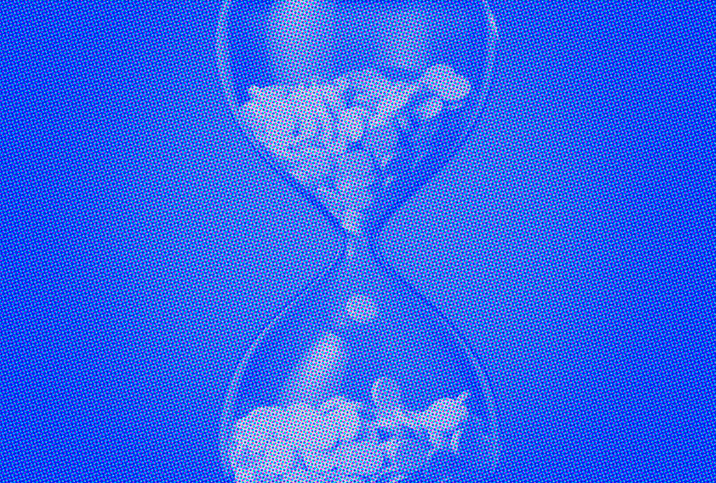What Are the Long-Term Side Effects of Antidepressants?

The decision to go pharma-free is one many people with mental illness grapple with, a consideration that feels equal parts aspirational and formidable.
Make no mistake: I have no shame about my daily dose of Wellbutrin.
As a person who has lived with clinical depression for more than 20 years, medication has been a lifeline when life didn't feel worth living. There have been days when I didn't take it where it felt like getting out of the bed was laughably impossible. And yet, the thought of perpetually taking pills isn't necessarily appealing, either.
Does the risk of a mental health relapse outweigh long-term health effects?
Who uses antidepressants?
Thirteen percent of Americans ages 12 and older reported having taken an antidepressant in the prior month, according to a 2017 report from the National Center for Health Statistics. Of those, two-thirds reported using antidepressants for at least two years and 25 percent had done so for at least a decade.
Most antidepressants are prescribed to treat moderate or severe depression. But they're also prescribed for ailments including anxiety disorders, neuropathy, sleep disorders, fibromyalgia, binge eating disorder, bulimia, bipolar disorder and attention-deficit/hyperactivity disorder (ADHD). Doctors may prescribe them off-label for conditions ranging from ulcerative colitis to smoking cessation as well.
Types of antidepressants
There are five main types of antidepressants: selective serotonin reuptake inhibitors (SSRIs), serotonin-norepinephrine reuptake inhibitors (SNRIs), norepinephrine-dopamine reuptake inhibitors (NDRIs), monoamine oxidase inhibitors (MAOIs) and tricyclics (TCAs).
Many people taking antidepressants have a condition involving an issue with neurotransmitters, typically serotonin, norepinephrine or dopamine. In some cases, the brain is not using these neurotransmitters efficiently; in others, there's an insufficient supply or a problem with the receptors. Antidepressants work by rectifying those dysfunctions.
The most widely prescribed antidepressants are SSRIs, which include medications like Celexa, Lexapro, Zoloft, Prozac and Paxil. These are safer and tend to produce fewer side effects than certain other types. SSRIs work by gradually boosting serotonin levels in the brain. Serotonin, or 5-hydroxytryptamine, is the primary neurotransmitter responsible for modulating mood and cognition, among other processes—higher serotonin levels equal better mood. SSRIs prevent neurons from reabsorbing serotonin, increasing its availability over time.
There's some debate about whether the "serotonin hypothesis" holds water more than 50 years after its inception. Nonetheless, SSRIs work well for many people.
How long should you take antidepressants?
There is no official maximum timeframe for taking antidepressants, per se, said Erika Gray, pharmacist and chief medical officer at Toolbox Genomics.
Similar to the causes and permutations of depression, recommended treatment type and duration can vary dramatically from one individual to another.
"Some people are on antidepressants for years," Gray said. "Many people struggle to find an antidepressant medication that works for them and doesn't have as many negative side effects, which can lead to increased time on the medication."
Many people only experience marked improvement after four to six weeks, said Kojo Sarfo, DNP, a psychiatric–mental health nurse practitioner.
Even then, finding the right dose and medication may require trial and error. Once a person finds the right medication, it can take three to six months to achieve remission.
"It can be frustrating," Sarfo said, adding that it's important to complement antidepressants with techniques like therapy to help patients cope in the interim.
Once depression is in remission, the American Psychiatric Association (APA) recommends patients taking antidepressants for the first time continue doing so for at least another four to nine months to prevent relapse.
For people who have experienced two or more depressive episodes, or with chronic major depressive disorder, the APA recommends continuing medication for at least a few years. This is because the risk of relapse increases with each episode.
A doctor may also recommend more prolonged treatment for those at high risk of relapse due to factors such as a family history of mental illness, early age of onset, the presence of another chronic health condition or ongoing stressors like insomnia that can exacerbate or trigger depressive episodes.
"Because depression is biochemical in nature either from nutrient deficiencies, improper neurotransmitter production or breakdown or microbiome disturbances, trauma, etc., unless individuals fix the origin of the depression, they may be on the medications for many years," Gray said.
Of course, while some people know the origin of their depression, whether trauma or hormonal imbalance, for others the root cause may be more elusive to pin down, including people with conditions attributable to neurochemical malfunction or genetics.
What are the risks of long-term use?
"There's limited evidence regarding long-term antidepressant use because of a variety of different factors, such as noncompliance, access to medications and proper education," Sarfo said.
Likewise, it isn't easy to pinpoint clear side effects.
Bryan Bruno, M.D., medical director at Mid City TMS, a New York City–based medical center focused on treating depression, said there is always a risk with medication, which can be exacerbated with long-term use.
"It's been shown that anyone taking antidepressants for two or more years is 30 percent more likely to become overweight or obese, which can come with difficulties like high blood pressure and other serious health issues," Bruno said.
A meta-analysis of 17 studies published in 2017 in the journal Psychotherapy and Psychosomatics found antidepressant use correlated to a 14 percent greater risk of heart attack or stroke. Other risks include osteoporosis, diabetes, and sexual dysfunction.
Sarfo explained that emotional blunting is another prevalent side effect in many of his patients.
"They feel flat, or they don't have as much expression," Sarfo said. "Sometimes people will say, 'I feel like my personality is changing.'"
Oxford University researchers have shown between 46 percent to 71 percent of antidepressant users experience emotional blunting. It is most common among people using SNRIs, SSRIs, and tricyclic and tetracyclic antidepressants.
Sarfo and most scientists agree serotonin likely plays a role, though it's unclear exactly how specifically. Because apathy and numbness can be depression symptoms, too, some argue emotional blunting is more likely to reflect the drug's shortcoming rather than a side effect.
Evidence available doesn't suggest treatment is more dangerous than the disorder.
Despite the prevalence of long-term antidepressant use, even the most scrupulous studies examining the drugs' safety and efficacy have followed patients for two to three years, at most. However, the evidence available doesn't suggest treatment is more dangerous than the disorder. In fact, women who find out that they are pregnant while on certain antidepressants are often recommended to continue the medication throughout their pregnancy.
Depression can cause serious long-term harm, including some of the same risks associated with antidepressant use. Along with emotional anesthesia, depressed people may be more at risk for obesity, diabetes and sexual dysfunction.
Besides a lower quality of life and increased risk of suicide, research indicates people with depression have a higher risk of heart attack or stroke than nondepressed people. Depression may also increase the risk of dementia and physically shrink certain brain regions, including the hippocampus, thalamus, amygdala, and frontal and prefrontal cortices.
Research shows a link between brain inflammation and depression as well, though it's unclear whether inflammation causes depression, or vice versa. Because inflammation can kill brain cells, it may cause the previously mentioned shrinkage and affect neuroplasticity and neurotransmitter function.
How to stop if you want to
Many people continue taking medication for years, even a lifetime. Others prefer to do so intermittently, as needed. For any treatment, what's best for one person may not be ideal for another.
"If you want to understand the risks and benefits of stopping or switching your medications, or if you're interested in pursuing other treatment options, always consult with your doctor before making any changes to your treatment plan," Bruno said.
There's nothing wrong with continuing medication for as long as you need to. For many of us, the benefits of antidepressants far outweigh the potential risks. But if you do decide to quit, do not go cold turkey, Gray said. Doing so may profoundly affect your mental and physical health, including an increased risk of relapse, withdrawals or discontinuation syndrome.
"After being on antidepressants for more than four months, some individuals may experience withdrawal symptoms when they decide to quit," Gray explained. "It's very important to decrease your medication dose with your practitioner slowly."
In addition to addressing any identifiable causes of depression, experts recommend utilizing dietary and lifestyle changes, including exercise and a gut-healthy diet, and complementary treatments such as counseling or therapy, to improve overall mental health and reduce the risk of relapse.
"The best thing to do is to be educated," Sarfo said.




















